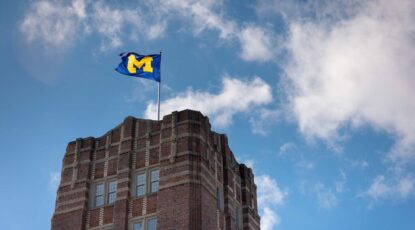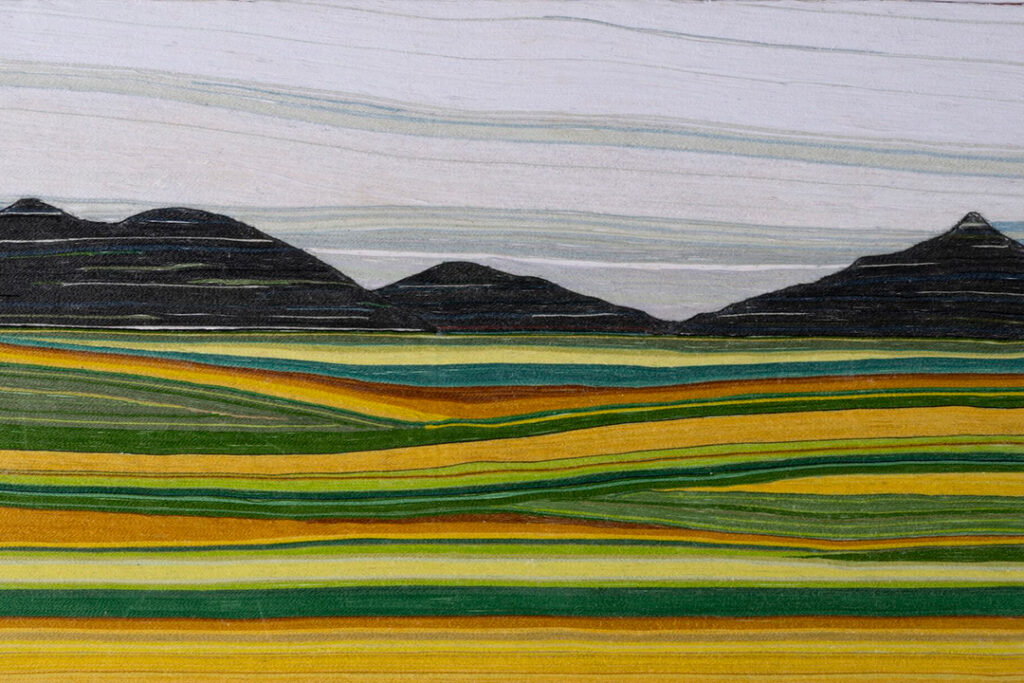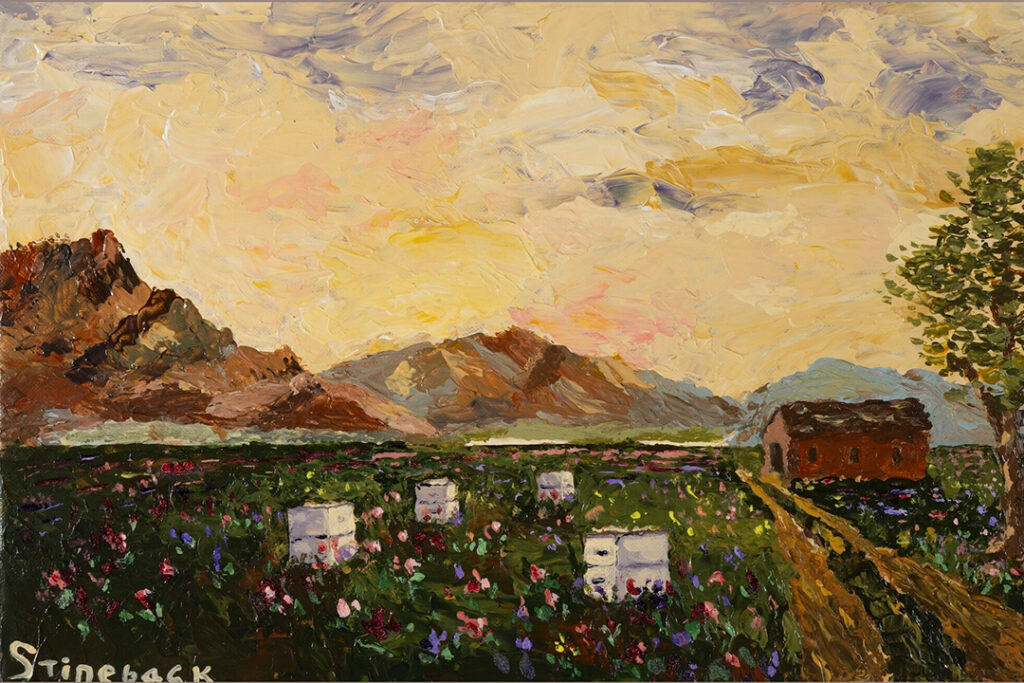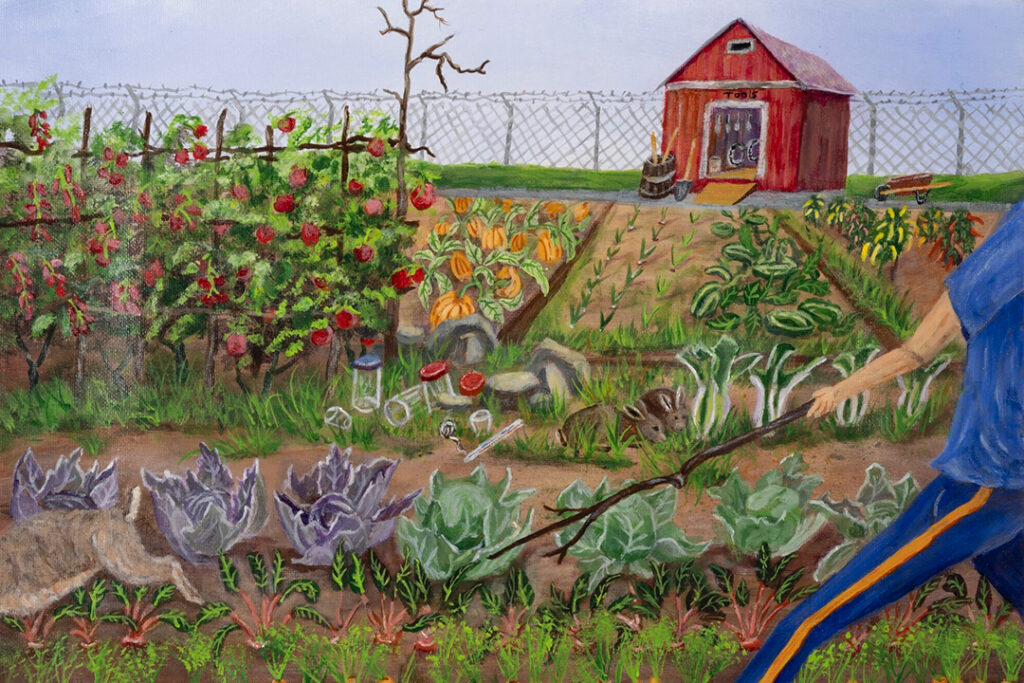The order that launched the Revolutionary War, 250 years later
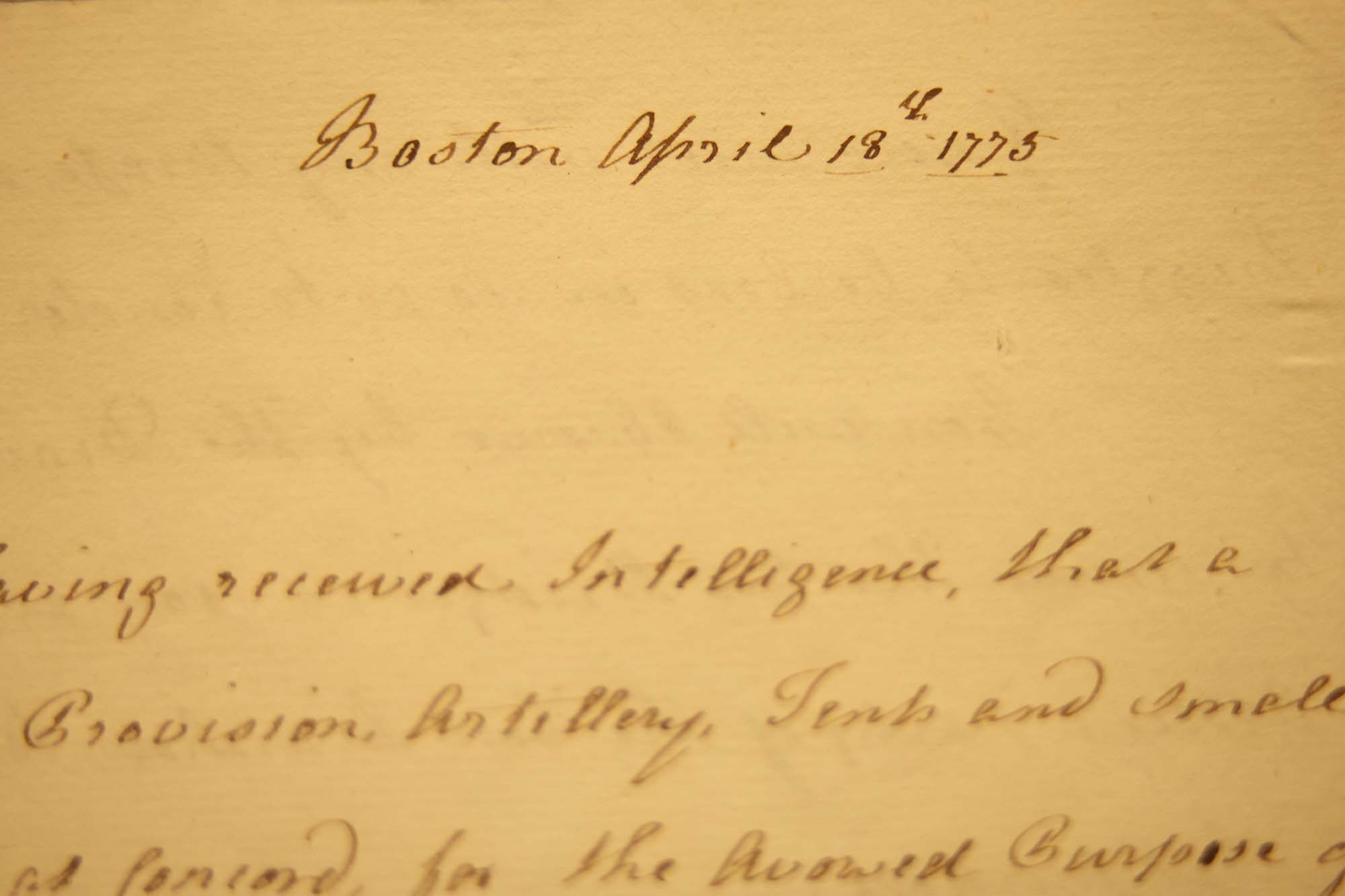
The ‘shot heard ’round the world’ can be traced to one manuscript containing the orders for the Concord Expedition on April 18, 1775. The quill-to-paper draft orders, penned by British Army officer Thomas Gage, sparked the Battle at Lexington and Concord the following day. U-M’s Clements Library holds the document.
-
Wildfires, windstorms and heatwaves: How extreme weather threatens nature’s essential services
How much will strawberry harvests shrink when extreme heat harms pollinators? How much will timber production decline when windstorms flatten forests? These are some critical questions that a new computer simulation, developed by U-M researchers, is helping answer.
-
Polio vaccine milestone: Podcast marks 70th anniversary of historic announcement at U-M
In today’s challenging era for vaccines, the U-M School of Public Health hosted a podcast taping April 11 in recognition of Dr. Thomas Francis Jr.’s announcement that the polio vaccine was safe and effective. U-M epidemiologist Matthew Boulton and Michigan’s chief medical executive Natasha Bagdasarian discuss vaccines, then and now.
-
Navigating the fear of DeepSeek and China’s technological advancements
In recent years, China’s technological advancements have captured the world’s attention, with DeepSeek — a Chinese AI model — emerging as a focal point of both admiration and anxiety. This duality reflects a deeper tension in how the U.S. perceives technological progress from China, revealing complex layers of fear, competition, and reflection.
-
U-M federal research funding fuels innovation, economic growth
Research universities are not only engines of discovery — they’re also engines of economic vitality. Every federal dollar invested in U-M research generates ripple effects across the country, creating jobs, supporting businesses, and preparing the skilled workforce the nation needs to stay competitive.
-
Federal budget cuts and worker safety
Cuts to the National Institute for Occupational Safety and Health has workplace safety experts such as U-M’s Richard Neitzel concerned that “without this research, more Americans will suffer preventable injuries and illnesses, businesses will face higher costs, and families will lose loved ones to workplace accidents that could have been prevented.”
-
Enabling stroke victims to ‘speak’: $19M toward brain implants to be built at U-M
Marcus Foundation’s $30 million gift supports a collaboration between Stanford and U-M to help stroke victims regain the ability to read, write and speak. The scientists are using the world’s smallest computers linked up to the world’s most biocompatible sensors.
Columns
-
President's Message
Reaffirming our focus on student access and opportunity
U-M seeks to ensure every student will rise, achieve, and fulfill their dreams. -
Editor's Blog
Peace out
It's a mad, mad, mad, mad world out there. -
Climate Blue
Keeping our focus on climate
As federal support for climate science wanes, Ricky Rood remains hopeful. -
Health Yourself
Are you an ‘ager’ or a ‘youther’?
Why do some people appear younger or older than people born in the same year?
Listen & Subscribe
-

MGo Blue podcasts
Explore the Michigan Athletics series "In the Trenches," "On the Block," and "Conqu'ring Heroes." -

Michigan Ross Podcasts
Check out the series "Business and Society," "Business Beyond Usual," "Working for the Weekend," and "Down to Business." -

Michigan Medicine Podcasts
Hear audio series, news, and stories about the future of health care.
In the news
- USA Today US consumer sentiment and expectations fall again in April as tariff uncertainty continues
- CNN Beyond Ivy League, RFK Jr.'s NIH slashed science funding across states that backed Trump
- Detroit Free Press Inflation is slowing. Wages are up. So why does life feel costly for many Michiganders?
Creativity and connection across prison walls
One of the world’s largest and longest-running exhibitions of incarcerated artists is back with new programming designed to foster connection and deepen public understanding of incarceration in Michigan. The 29th annual Exhibition of Artists in Michigan Prisons, curated by U-M’s Prison Creative Arts Project, showcases 772 artworks by 538 artists incarcerated in 26 state prisons. The Duderstadt Center Gallery on U-M’s North Campus is presenting the artwork through April 1.




